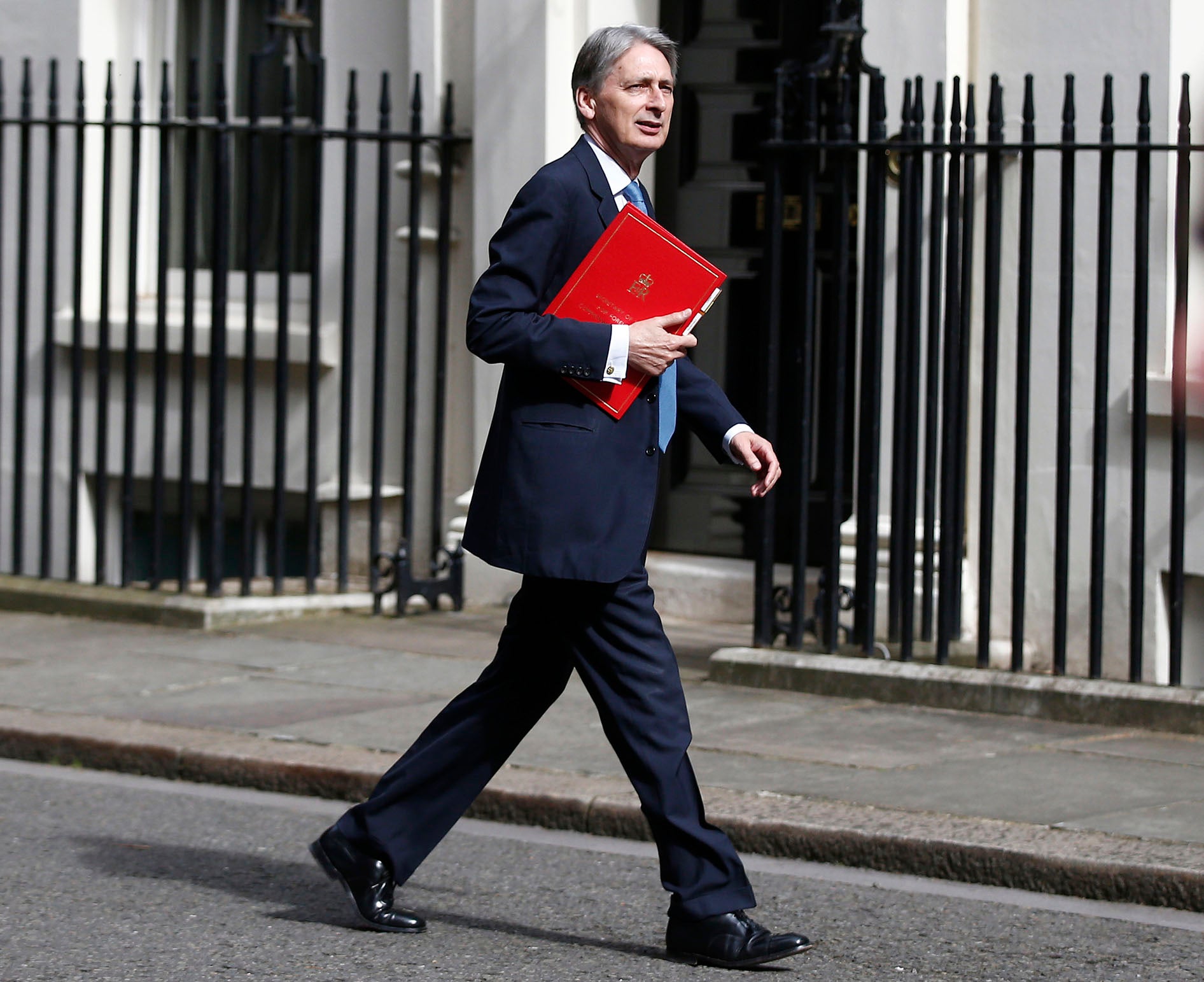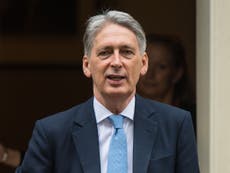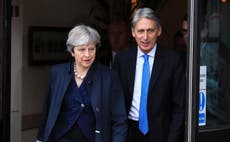The £20bn budget black hole isn't Philip Hammond's only problem
The reasons for this historic failure to fix the public finances are many and complex

Like that mythical crock of gold at the end of the rainbow, the British budget surplus always moves further away the closer a Chancellor of the Exchequer gets to it. Already pushed back from when it was scheduled to appear by George Osborne (ie about now) to the current target of the mid-2020s, the Institute for Fiscal Studies warns that the Government may have to stay on the yellow brick road for years longer.
So dire are the public finances becoming that it may even be something we hope to discover in the 2030s, maybe in time for the centenary of the release of The Wizard of Oz, in 2039. John Maynard Keynes once famously remarked that “in the long run we are all dead”, but this is ridiculous. There will be a good deal of mockery of Philip Hammond when he comes to present his Budget to Parliament on 22 November. Rightly so.
The reasons for this historic failure to fix the public finances are many and complex. To be fair to Mr Hammond, they predated his arrival at the Treasury, though not his membership of the Cabinet since 2010. Put simply, the regime of austerity pursued under the Cameron and May governments didn’t work. Part of that was down, ironically enough, to the reverberations of the financial crash and the pre-Brexit slump in the European economy, a crisis-driven downturn in the UK’s largest export market that had a deeply depressing effect on British commerce and tax revenues.
It would be cruel to push that point any further, given that we now have a government apparently indifferent to the prospect of crashing out of the European Union with no deal at all. Mr Osborne, then, could hardly be blamed for the Greek debt crises, the collapse of the Irish banks or the Spanish real estate market.
Still, all mitigating circumstances aside, there was plainly an opportunity to invest in the UK’s infrastructure after 2010 under Conservative-led administrations, and it was not exploited as it could have been at a time of unprecedented low interest rates. For all the talk of the Northern Powerhouse and Midlands engines of growth, not enough fuel has been provided for them to ignite into the fantastic jobs-generating machines we were once promised.
On a longer-term view, the strange death of growth in the productivity of the British economy since the financial crisis – historically highly unusual – has undermined all the old assumptions about what routine growth levels in the UK might be, from around 2 to 3 per cent a year to next to nil. Successive governments of all parties must share the blame for that, as productivity growth was disappointing for most of the period since the 1980s, if not 1945 or the 1880s. In his time as Chancellor and Prime Minister, Gordon Brown made many speeches about it; for all his efforts it remained stubbornly low.
What Mr Osborne did not have to cope with, but Mr Hammond does, is an increasingly spendthrift prime minister. Hardly a day goes by without Theresa May throwing the Treasury’s money at some political problem: mental health provision; public sector pay; repairing grim and dangerous council housing post-Grenfell; a new IT system and bureaucracy for HM Revenue & Customs; secret bungs to Nissan (allegedly) and other car companies to keep manufacturing in the UK; the “triple lock” on old age pensions; the “special needs” of Northern Ireland, as set out at dictation speed by the Democratic Unionist Party; anti-terror measures; help for first-time buyers and those with student debts; a massive public house building programme; reforms to social care; easing up on universal credit and so on.
Either the “magic money tree” Ms May derided during the election is yielding an unexpectedly heavy crop of luscious financial fruits, or Ms May is making it up as she goes along. Mr Hammond, reluctant Leaver as he is, is having to find a way to pay the bills for a slothful economy that could experience a deep slow-acting slump once the negative impact of Brexit gradually feeds its way through the economy – and it will take many years for it to do so.
It looks as though two things will happen. First, in order to fund Ms May’s promises and to create a fund to cushion the blow of Brexit, Mr Hammond will need to raise taxes; this means taxes on the wealthier and older members of society, or at least those not otherwise protected by one of Ms May’s pledges.
When the Chancellor talks grandly about “a Budget for the next generation” he’s not referencing Star Trek. It does not require much political nous to decode that one: he is planning a tax raid of major proportions on what we might less tactfully term “the last generation” – pension perks, inheritance tax and capital gains taxes, for example. The Tories are terrified that they have lost the votes of the under-forties to Labour. True, but they risk also losing many more of the support of the over-fifties to apathy or abstention or protest. After all, Mr Corbyn and John McDonnell are promising them the earth too, and Ms May and Mr Hammond will never be able to outbid Labour for anybody’s vote.
Second, as we will see this week, the Bank of England may feel impelled to signal some concerns with this continuing crisis in the public finances. What the Government does is business in the current orthodoxy; but the Bank is supposed to act if inflationary pressures look like they may become persistent. When Mark Carney and his colleagues glance at the media they must be struck by how much chatter there is – now from both main parties outbidding each other – about public sector pay increases, mandatory lifting of the “living wage” and post-Brexit shortages of labour pushing wages up as the EU migrants head back to Eastern Europe.
In such circumstances, the Bank is obliged to take cautious pre-emptive action to restrain a wage-price spiral. It would be a shock if the Bank did not this week indicate a wish to raise rates and signal its intent to go further if needs be. With household debt and mortgage commitments at such record highs, and consumer confidence ebbing, even a modest rise in rates could cause hardship in some quarters, and possibly a correction (some say overdue) in the residential property market. That, in turn, will do the public finances no favours. This will not be the last tough Budget Mr Hammond will have to deliver.




Join our commenting forum
Join thought-provoking conversations, follow other Independent readers and see their replies